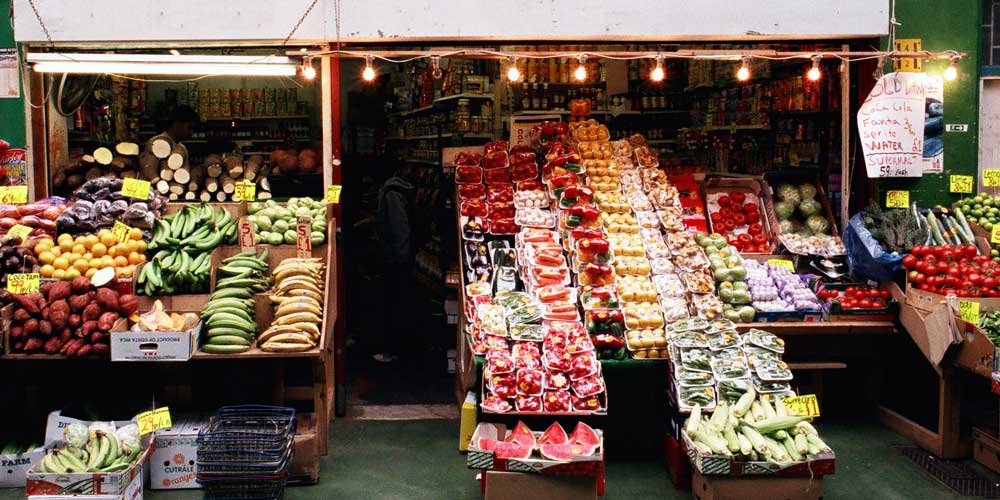During 2019 six councils in London implemented projects that aimed to improve access to healthy and affordable food in retail settings, funded by the Mayor of London small grants programme and supported by London Food Link.

The councils of Bexley, Camden, Croydon, Kensington and Chelsea, Newham and Southwark have undertaken a variety of ambitious projects that aim to
- Improve the heathy, affordable food on offer in convenience stores.
- Increase the take up of Healthy Start vouchers among local retailers.
- Increase healthy food options available at markets.
- Develop a strategic plan to influence and lead this agenda across their borough.
As the projects come to a close in late autumn 2019, we will be sharing learning from this work more widely via the London Boroughs Food Group, a webinar, summary report and case studies.
What is Good Food Retail?
We use ‘retail’ to refer to grocers, shops, markets, box schemes, food co-ops and deliveries that sell food for consumption at home or on the go. ‘Good food’ refers both to the quality of the food and ideally to the wider activities of a values-driven enterprise. They may be non-profit, social enterprises or for-profit food retailers that play a part in their community beyond trading.
Broadly it refers to retailers doing at least some of the following:
- Reducing promotion and/or access to highly processed fatty, salty and sugary foods and sugary drinks.
- Sourcing sustainably produced fruit and veg, meat, dairy and fish, wholegrain foods and Real Bread.
- Providing safe and nutritious food for diverse needs.
- Treating employees and suppliers fairly.
- Developing collaborative relationships with suppliers.
- Reducing environmental impact.
How can local councils support Good Food Retail?
When councils, local partnerships or Business Improvement Districts (BIDs) support Good Food Retail, then smaller-scale, values-driven and community-led food enterprises have a better chance of thriving.
Councils can also help to increase access and affordability of healthy food, fruit and vegetables in a variety of ways, whether through street markets, the Healthy Start voucher scheme or supporting food co-ops or pantries. Councils can also enable cooperation along values-led supply chains and help connect retailers with local food producers and growers.
Council actions may include
- Developing a Good Food Retail Plan that identifies opportunities and priorities, allocates responsibilities for supporting growth in the sector, and builds in measures of success and senior buy-in.
- A joined up approach between public health, economic development, regeneration and planning teams, particularly when working with retailers like convenience stores.
- Encouraging retailers to accept Healthy Start vouchers.
- Supporting street markets with thriving fruit and vegetable stalls.
- Preferential access to markets, retail premises and street food trading for healthy and/or fresh fruit and vegetable vendors, especially in areas with low access.
- Loans or grants for start-up costs with business support from an enterprise specialist.
- Innovative retail approaches to tackling household food insecurity, like food co-ops or pantries.
- Policies and planning that reduces the advertising and promotion of, and access to junk food.
Maddie Guerlain
Project Coordinator, Sustain
maddie@sustainweb.org
www.sustainweb.org/londonfoodlink/good_food_retail/
Good Food For London: How London boroughs can help secure a healthy and sustainable food future

